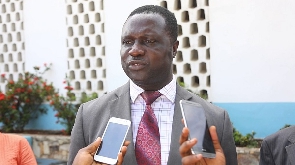Dr Yaw Osei Adutwum, Minister for Education, says the remarkable improvement in this year’s West African Senior School Certificate Examination (WASSCE) results is proof that Ghana’s educational standards have not fallen.
He said it was also testament to the hard work put in by headmasters, teachers and students to produce such results.
The Minister said this on Saturday during an interview session on an Accra-based Television station on the topic, “Best WASSCE Results. A case of an improved education system?”
A performance report released by the West African Examinations Council (WAEC) indicates that candidates in core subjects in the 2023 WASSCE recorded fluctuating trends over the years.
WAEC noted that there had been fluctuating trends in the performance of candidates in English Language, Mathematics, and Integrated Science while Social Studies showed an upward trend in the performance of candidates over the four-year period.
English Language in the year 2020, 2021,2022 and 2023, recorded 57.34 per cent, 54.08 per cent, 60.39 per cent and 73.11 per cent, passes respectively.
In Core Mathematics, the Council recorded 65.71 per cent, 54.11 per cent, 61.39 per cent and 62.23 per cent over the four periods.
In the case of Integrated Science, WAEC recorded 52. 53 per cent, 65.70 per cent, 62.45 per cent and 66.82 respectively over the four-year period.
WAEC said in Social Studies, it recorded 64.31 per cent, 66.03 per cent, 77.51 per cent and 76.76 per cent respectively in the four-year period.
Dr Adutwum said this year’s WASSCE results were the best since 2015 and the inception of the Free Senior High School programme.
He said Ghana could win the war against poverty through a robust educational system that did not only guarantee access but enhanced quality and relevance to the needs of the country.
The Minister said despite the high enrolment in Senior High Schools, education outcomes had not diminished.
“It is known around the world that education outcomes decrease when enrolment increases. But in the case of Ghana, what did we do differently? When Ghana doubled enrolment, we automatically also doubled class sizes but unlike other countries, we had excess teachers that could be deployed to handle the doubled class sizes.
“In addition, when we improved the learning outcomes, we created a different ecosystem. Whereas before free SHS, students would take two to four weeks to come to school because they were waiting at home looking for money to pay fees, we made it free.
“Therefore, during the first week they are in school and because of this, they are not missing anything. Consequently, the time on task has improved tremendously in our schools,” he explained.
He said the Government was looking at ways to properly resource and fund the students’ loan with no guarantor policy to allow students who due to financial constraints could not enter tertiary institutions.
“We are also aligning when the loans come out with when the students go to school. The students’ loan trust fund will open the portal at the time tertiary schools are receiving admissions so that those who don’t have money can borrow in time to be able to enter tertiary schools and boost the numbers there,” he said.
General News of Monday, 25 December 2023
Source: gbcghanaonline.com

















